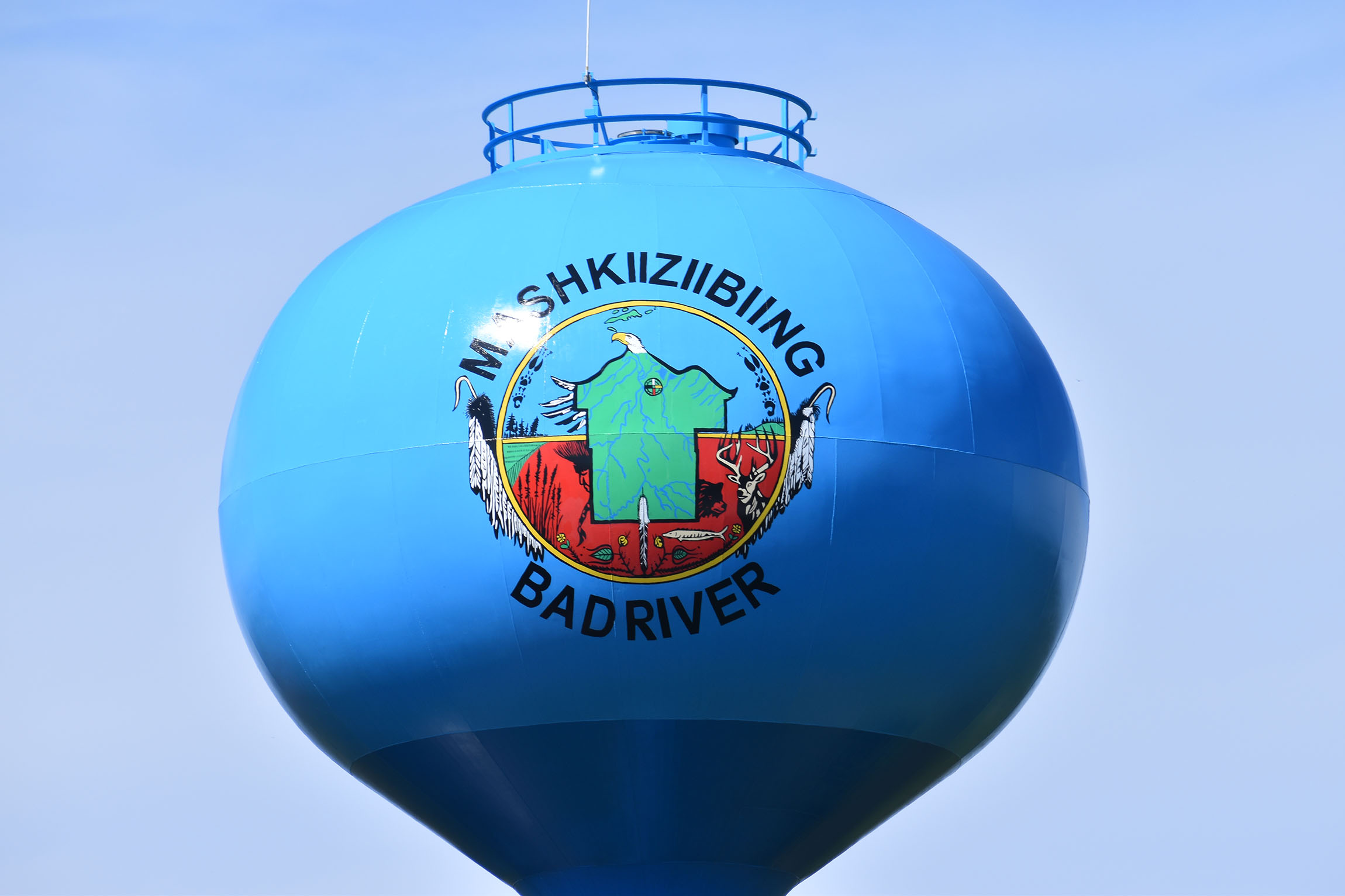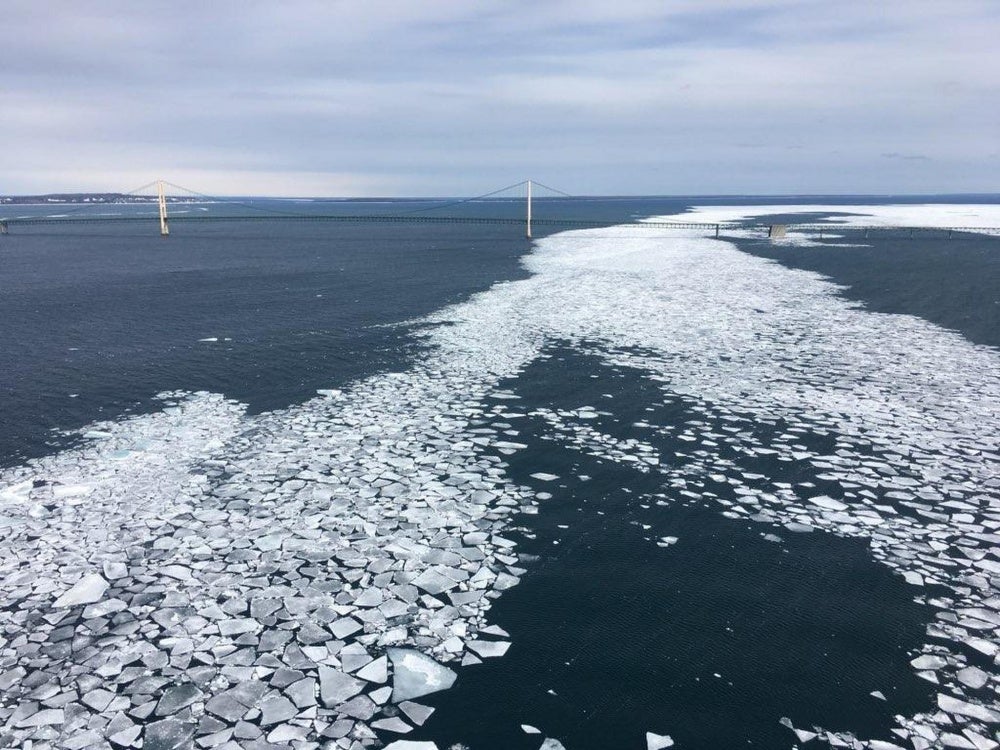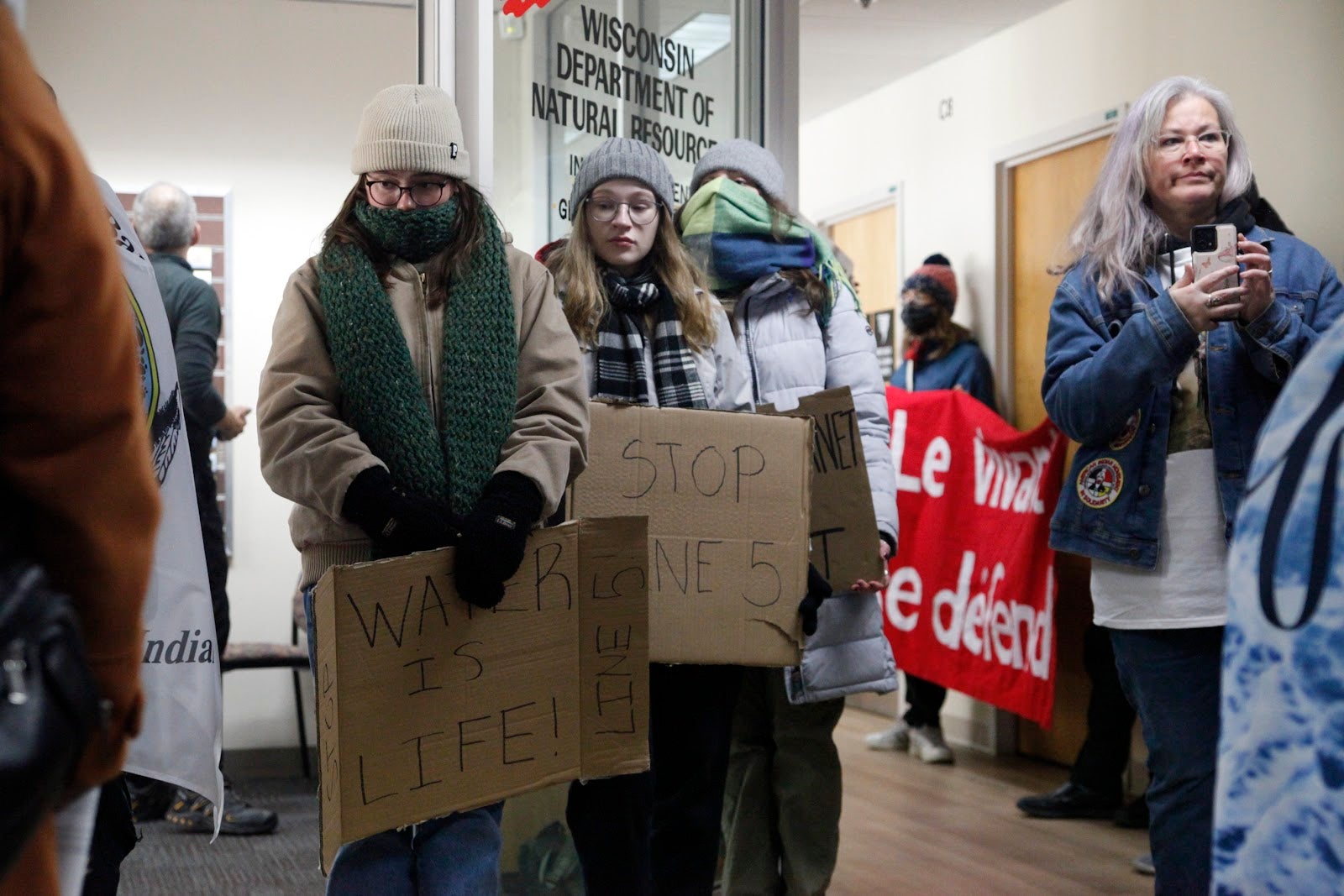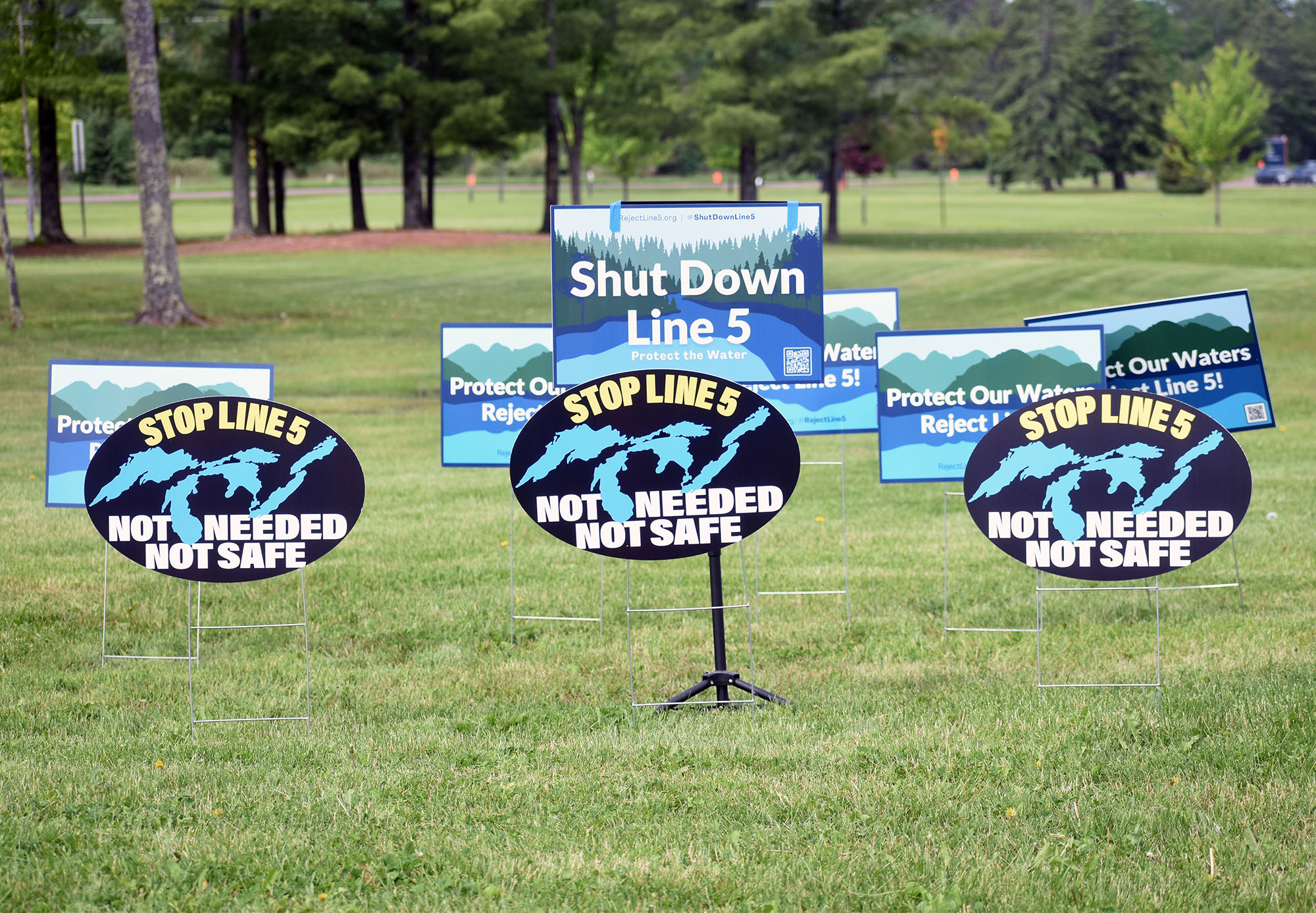State regulators say they’re making progress on an environmental review of Enbridge’s plans to relocate Line 5 as a federal judge has ordered a partial shutdown of the oil and gas pipeline on the Bad River reservation.
In 2020, the Canadian energy firm proposed rerouting its Line 5 pipeline after the Bad River Band of Lake Superior Chippewa sued the company in 2019 to shut down and remove the pipeline from tribal lands. Enbridge wants to build a new 30-inch segment that would run 41 miles around the tribe’s reservation in Ashland and Iron counties, a project estimated to cost at least $450 million.
The Wisconsin Department of Natural Resources is revising its draft environmental impact statement for the rerouting plan, as well as analyzing the company’s application for waterway and wetland permits.
Stay informed on the latest news
Sign up for WPR’s email newsletter.
The DNR is currently addressing more than 32,000 comments on its draft review. Ben Callan, the agency’s integration services section manager, said that’s the most he’s seen in nearly two decades managing utility and energy projects.
“It’s complex, it’s controversial and there’s a lot of robust stakeholder interest in it,” Callan said. “We’re trying to make sure that we’re satisfying our responsibilities for our role in disclosure and review of the proposal.”
Built in 1953, Line 5 carries up to 23 million gallons of light crude oil and natural gas liquids each day over a 645-mile span from Superior across northern Wisconsin and Michigan to Sarnia, Ontario.
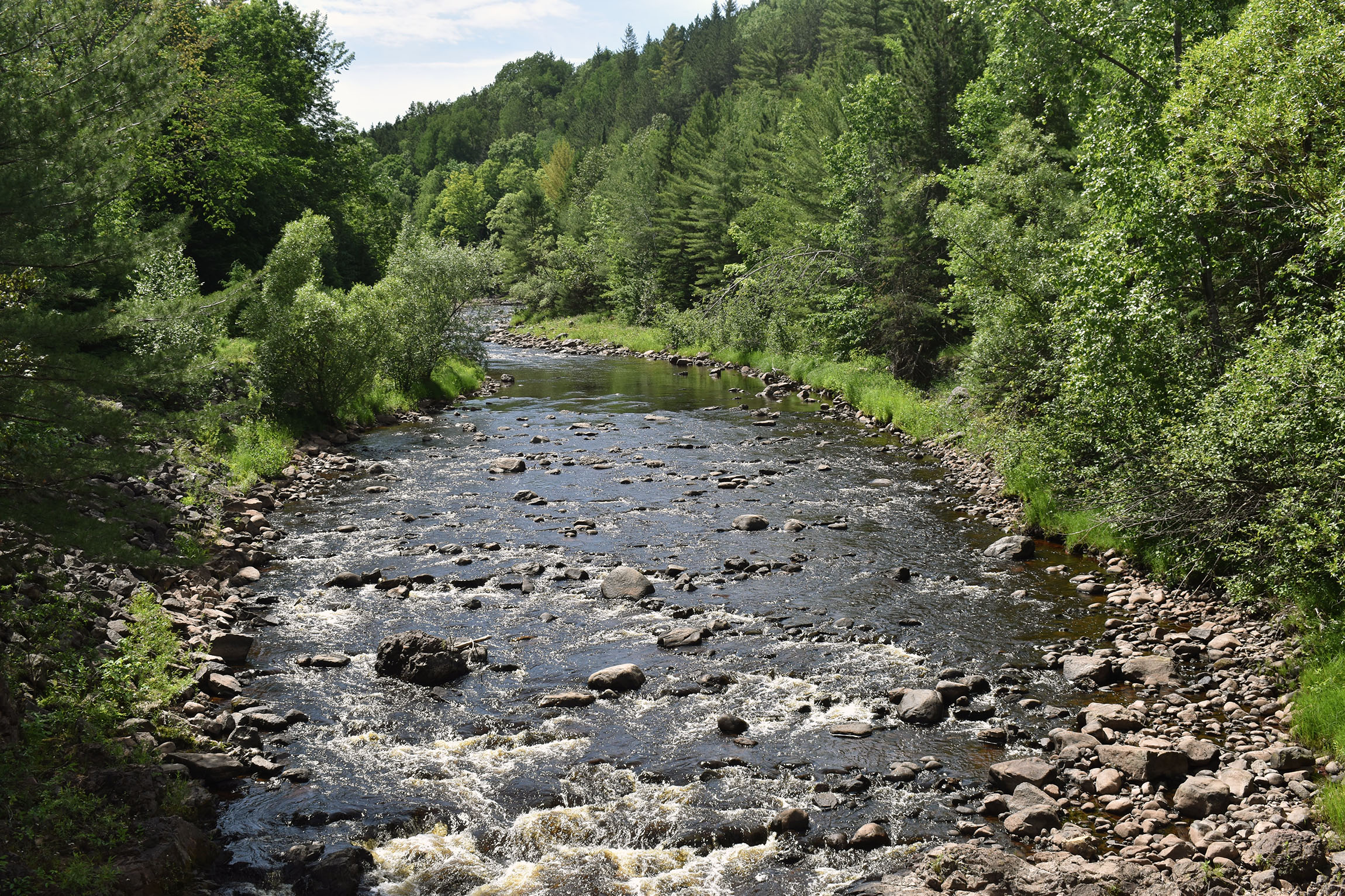
The Line 5 project is anticipated to cross around 185 waterways and discharge dredged material into more than 100 acres of wetlands. Last year, Wisconsin Public Radio reported the EPA said the agency had not yet fully analyzed the project’s potential impacts on water resources, climate change and treaty rights.
Callan said the DNR is collaborating with federal agencies and the U.S. Army Corps of Engineers on Enbridge’s application, which was filed jointly with state and federal regulators. The final version of the DNR’s environmental review will be used to decide whether state permits are ultimately issued for the project.
Meanwhile, the Corps is analyzing Enbridge’s application for a permit under the Clean Water Act. The Army Corps is regulating construction-related activities in federal waters affected by the project, as well as Enbridge’s proposal to drill underneath the White River. The federal agency is preparing its own separate environmental assessment for the project, which regulators have said will determine the need for a federal environmental impact statement.
In a ruling last week, U.S. District Judge William Conley said Enbridge must cease operations on the reservation where Line 5 is illegally operating. Easements for the pipeline expired on a dozen parcels of tribal land in 2013, and Conley ruled in September that the company was trespassing on those lands. The judge has given Enbridge three years to complete its project to reroute Line 5.
“If Enbridge fails to do so, the three years will at least give the public and other affected market players time to adjust to a permanent closure of Line 5,” Conley wrote. “It will also give Enbridge sufficient time to appeal this court’s injunctive order or make new law.”
Neither Enbridge nor the Bad River Band are completely pleased with the judge’s ruling. The tribe’s attorney said the three-year window leaves Bad River “vulnerable to catastrophe” as spring flooding has increased erosion near the pipeline. Meanwhile, the company disputes that it’s trespassing on the tribe’s lands and plans to appeal the decision.
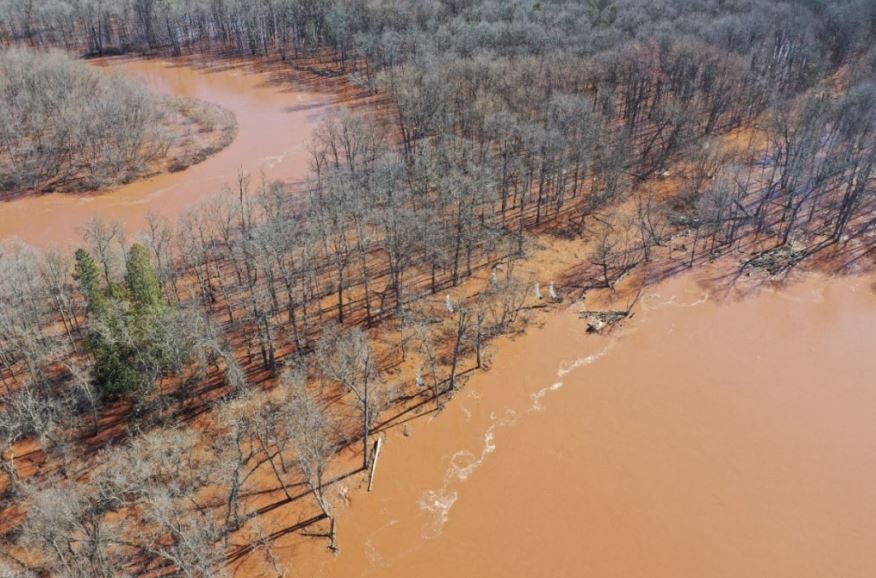
Paul Eberth, Enbridge’s director of tribal engagement in the U.S., told WPR the company believes it’s very possible agencies could award permits for its project in the judge’s three-year timeframe. He said the company has purchased pipe and secured agreements from all landowners along its preferred route.
“We’re ready to go, to remove the pipeline operations from the reservation, but believe that the Band then should and is obligated to continue to work with us on the safe operations until the pipeline can be relocated,” Eberth said.
Bad River Tribal Chairman Mike Wiggins Jr. didn’t immediately respond to a request for comment on Wednesday. In September, Wiggins told WPR the tribe is seeking to protect the Bad River Watershed where the project would be located.
“Protecting the watershed home is of upmost importance. Enbridge activities and their proposed reroute are in very sensitive areas where surface waters and subsurface groundwater interact,” Wiggins said at the time. “So, the current reroute as it’s proposed is very, very problematic. It’s in the tribe’s hydrology.”
The company is continuing to provide information about the project to the DNR and Army Corps upon request. Eberth said Enbridge believes the DNR will complete its environmental impact statement by the end of the year.
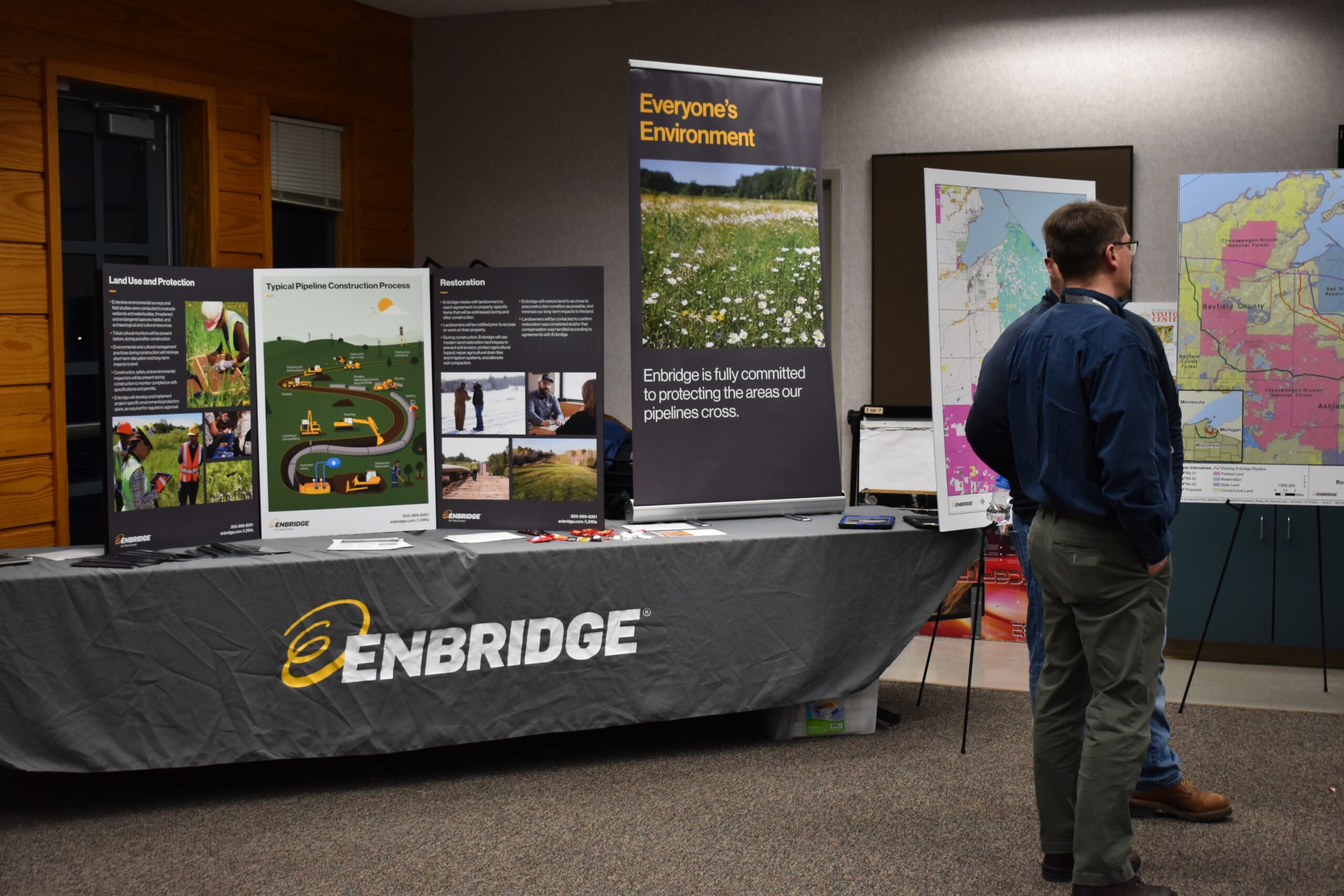
However, the DNR’s Callan said the agency does not have a timeline for completing its review.
At a stop in Superior on Tuesday, Democratic Gov. Tony Evers said it’s too soon to say whether he would support Enbridge’s proposed reroute or the DNR’s decision regarding permits for the project.
“I don’t want to prematurely say what the DNR is going to end up suggesting or ordering, and so (I’m) waiting for that to happen,” Evers said.
Opponents of the project like Sierra Club Wisconsin have called on Evers and his administration to reject permits for the project. In a statement Tuesday, the organization also called on President Joe Biden to revoke a presidential permit for Line 5 that allows the flow of oil across the border between the U.S. and Canada.
“Line 5 has spilled 33 times and at least 1.1 million gallons along its length since 1968; plain and simple Enbridge cannot be trusted with this aging pipeline – which has long outlived its anticipated lifespan,” Sierra Club Wisconsin Chapter Director Elizabeth Ward said in a statement.
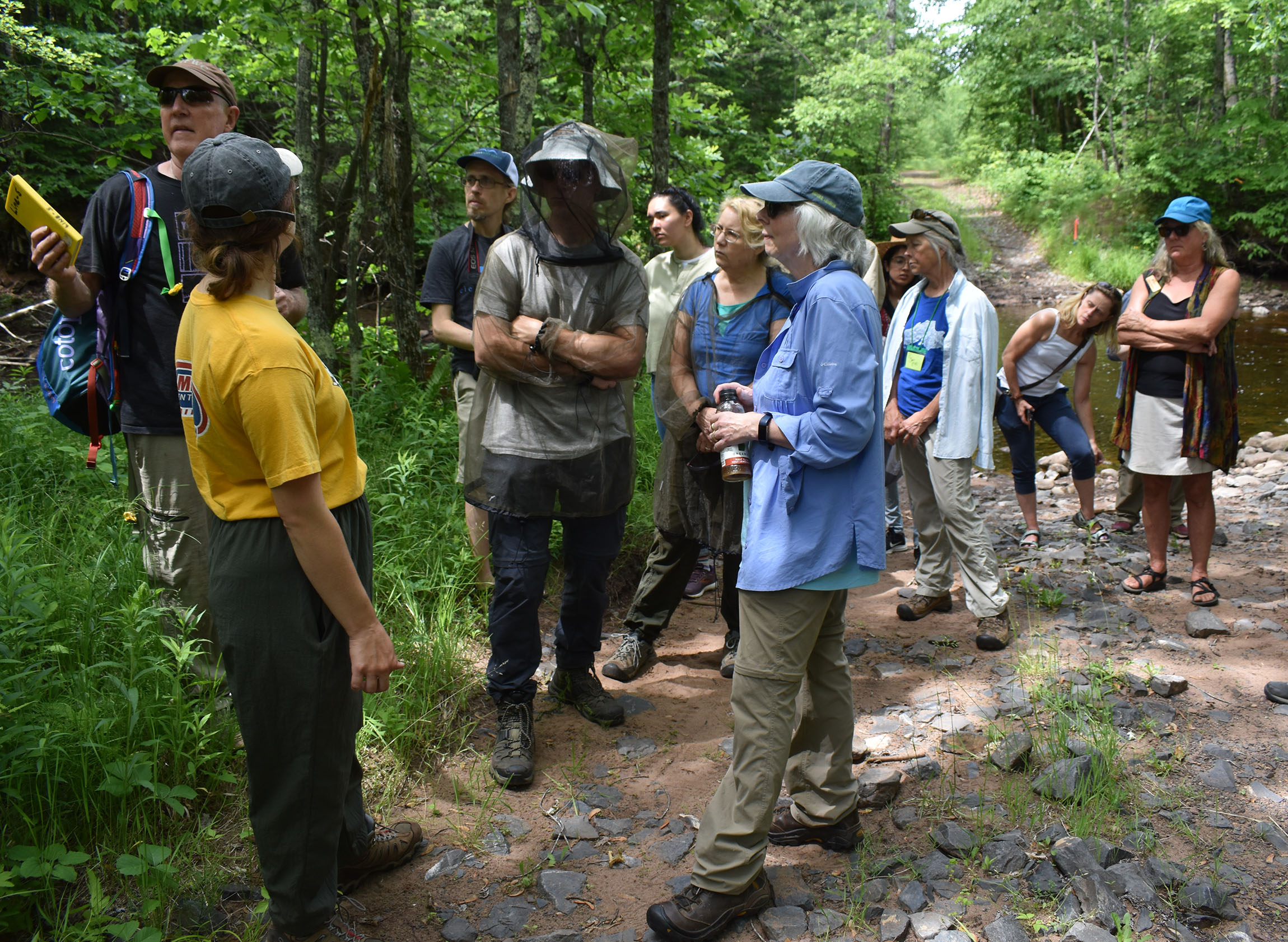
The Canadian government has invoked a 1977 treaty with the U.S. that guarantees the flow of oil and natural gas across the border as part of the tribe’s case to shut down the pipeline. Canadian officials have also invoked the treaty in a separate legal challenge in Michigan seeking to shut down Line 5 in the Great Lakes.
Enbridge experts have said in court filings that shutting down Line 5 could result in the loss of thousands of jobs and billions of dollars in lost economic output in the Upper Midwest, as well as increase fuel costs by an estimated $20 million each year in Wisconsin and $30 million annually in Michigan. The tribe’s experts have disputed those estimates.
Labor groups like the Wisconsin Building Trades Council and Republican lawmakers want to see the DNR advance permitting for the project in light of the judge’s recent ruling.
“Line 5 is not only vital to the over 250,000 Wisconsinites that rely on propane to heat their homes, but also to our state’s economy,” said Republican Congressman Tom Tiffany in a statement. “All of this could be resolved if the Department of Natural Resources approved the Line 5 relocation permit, but Governor Evers’ DNR has sat on their hands for over three years. Wisconsinites deserve better.”
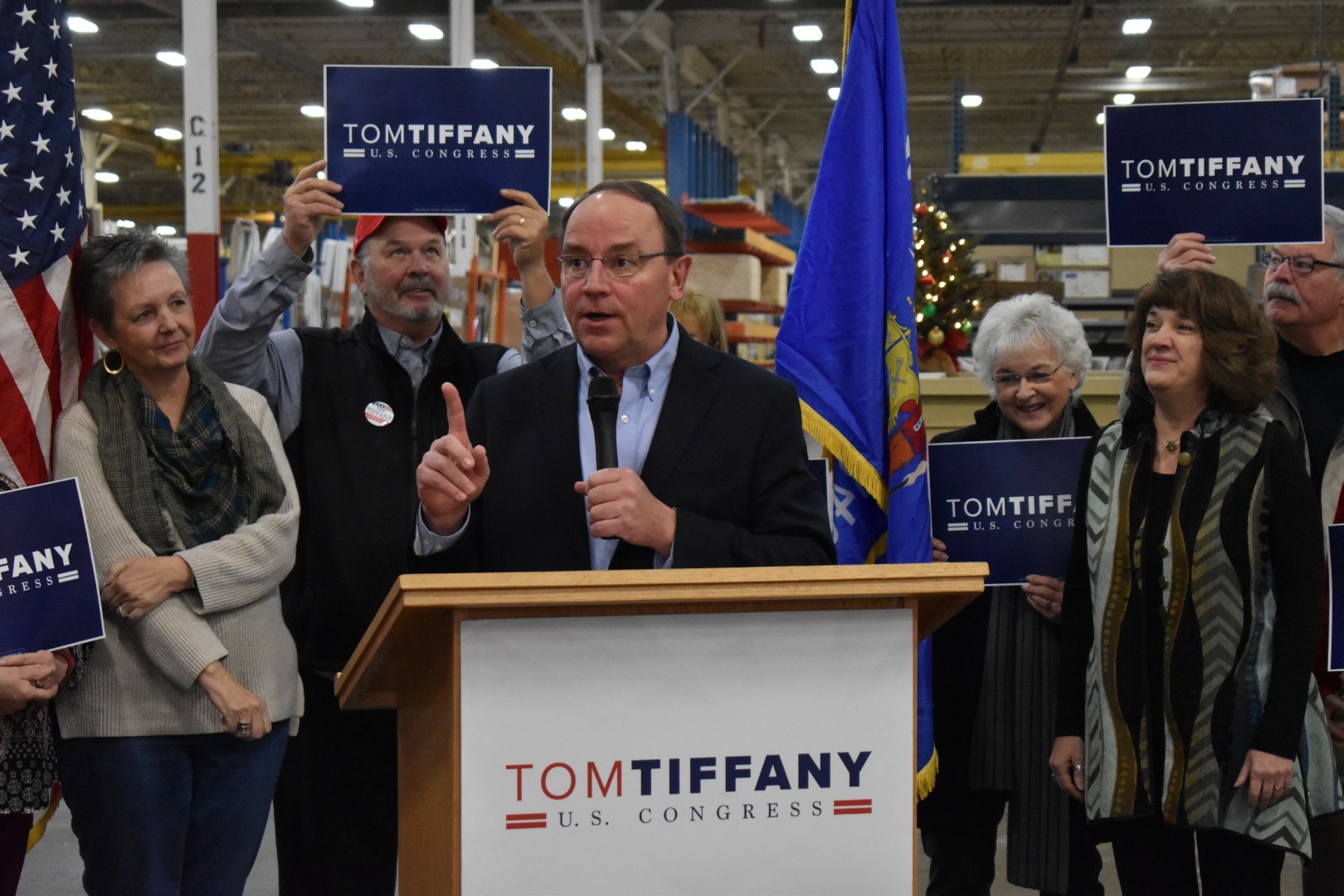
Wisconsin Republican lawmakers, labor unions and the state’s largest business lobby have touted the 700 jobs that would be created by the reroute, as well as the $135 million economic impact it would create for the state.
Callan said the DNR wants to ensure the agency’s decisions on the project are “accurate and defensible.”
While the state’s review is pending, Enbridge proposed placing sandbags along the Bad River’s banks to slow erosion near Line 5. The Bad River Tribal Council rejected a permit for that project as part of its permitting authority under the Clean Water Act, saying it didn’t meet the tribe’s water quality standards. Eberth said the company has also proposed installing trees along the river bank, saying he’s hopeful the tribe will approve the project.
WPR’s northern region program “Simply Superior” will feature an interview with Enbridge’s Paul Eberth and rebroadcast an interview with Bad River Tribal Chair Mike Wiggin’s Jr. on Friday, June 23, 2023. Listeners can hear the program online.
Wisconsin Public Radio, © Copyright 2025, Board of Regents of the University of Wisconsin System and Wisconsin Educational Communications Board.

